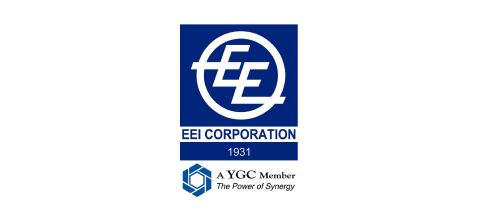English proficiency exams like TOEFL, IELTS, and Cambridge exams serve as crucial gateways for students and professionals seeking to study or work in English-speaking countries. These tests evaluate your English language skills in a variety of areas, including reading comprehension, essay writing, listening skills, and speaking proficiency. As you embark on your journey to conquer these exams, you likely have numerous questions.
This blog post will delve into these common queries, providing you with a thorough understanding of test formats, study techniques, and invaluable exam tips to help you achieve success.
Understanding English Exam Formats: TOEFL, IELTS, and Cambridge Exams

English proficiency exams come in various flavors, each with its unique format and purpose. TOEFL, IELTS, and Cambridge exams are three prominent options that cater to different needs and preferences.
- TOEFL (Test of English as a Foreign Language):
- TOEFL is a widely recognized English proficiency exam, particularly in the United States. It primarily assesses the English language skills of non-native speakers who wish to study or work in American institutions. TOEFL has evolved over the years and currently offers three test formats: TOEFL iBT (Internet-based test), TOEFL PBT (Paper-based test), and TOEFL Essentials (a shorter, at-home version).
- IELTS (International English Language Testing System):
- IELTS is another globally accepted English language exam designed to measure the language proficiency of candidates applying to universities, immigration programs, or professional settings in countries where English is the primary language. IELTS comes in two formats: Academic (for academic purposes) and General Training (for immigration and general professional purposes).
- Cambridge Exams:
- The University of Cambridge offers a suite of English language exams, including the Cambridge First (FCE) and Cambridge Advanced (CAE). These exams are recognized by numerous institutions worldwide and assess your language skills in various contexts, from everyday communication to academic and professional settings.
Choosing the Right English Exam: A Decision-Making Guide
Selecting the most appropriate English exam for your needs is paramount to your success. The choice you make can significantly impact your academic or professional journey. Here’s how to decide:
- Consider Your Destination: Determine which English proficiency exam is preferred or required by the country, institution, or program you plan to apply to. For instance, if you aim to study in the United States, TOEFL might be your best bet.
- Assess Your Purpose: Different exams may be better suited for particular purposes. IELTS is a versatile choice accepted by various universities and organizations, while Cambridge exams often cater to academic and professional settings.
- Evaluate Format Preferences: Consider whether you’re more comfortable with computer-based (TOEFL iBT) or paper-based (TOEFL PBT) exams. Some exams, like IELTS, offer both formats.
- Research Score Requirements: Look into the minimum score requirements of your target institution or program to ensure you aim for the right proficiency level.
- Seek Expert Guidance: If you’re unsure which exam to take, consult with a language school, educational consultant, or the admissions office of your chosen institution for guidance.
By making an informed choice, you set yourself on the right path to success in your English proficiency journey.
Effective Test Strategies: Navigating the Exam with Confidence

Securing a high score on English proficiency exams requires more than just language skills; it also demands smart test-taking strategies. Here are some essential tips to guide you:
Time Management:
- Practice Time Allocation: Familiarize yourself with the time limits for each section of the exam. Allocate your time wisely to ensure you can complete all questions.
- Skip and Return: If you encounter a challenging question, don’t get stuck. Skip it and return later if time allows.
Reading Comprehension:
- Preview the Questions: Before reading a passage, quickly skim through the questions. This primes your mind to look for relevant information while reading.
- Focus on Key Details: Pay attention to the main ideas, supporting details, and the author’s tone. Underline or jot down essential points.
Writing Essays:
- Plan Your Response: Take a few minutes to outline your essay. This helps you structure your thoughts and ensures your essay has a clear introduction, body, and conclusion.
- Stay on Topic: Address the essay prompt directly and avoid going off-topic. Keep your arguments relevant and concise.
- Revise and Proofread: Allocate time at the end to review and edit your essay for grammar, punctuation, and clarity.
Listening Skills:
- Practice Active Listening: Concentrate on understanding the main ideas and key details during listening exercises. Take notes if allowed.
- Use Context Clues: If you miss a specific word or phrase, rely on the context to understand its meaning.
Speaking Practice:
- Engage in Conversations: Regularly converse in English with native speakers, language partners, or language exchange programs to improve fluency and pronunciation.
- Record Yourself: Record your spoken English to identify areas that need improvement. Listen for pronunciation, intonation, and fluency.
- Join Language Clubs: Consider joining English language clubs or online communities where you can practice speaking with others who share your goals.
Effective Preparation for English Exams
Effective preparation is the cornerstone of success in English proficiency exams. Here’s a more detailed breakdown of study techniques and tips to help you succeed:
Use Official Study Materials:
- TOEFL: TOEFL provides official test prep materials, including practice tests, sample questions, and study guides. These resources offer authentic test questions and help you become familiar with the TOEFL format.
- IELTS: The official IELTS website offers sample test questions, practice tests, and a range of preparation materials to help you get ready for your exam.
- Cambridge Exams: The University of Cambridge offers official preparation materials for its exams, including sample papers and study guides.
Take Practice Tests:
- Regular Practice: Regularly taking practice tests is one of the most effective ways to prepare. It helps you become familiar with the test format, assess your strengths and weaknesses, and build your test-taking stamina.
- Simulate Exam Conditions: When taking practice tests, try to simulate exam conditions as closely as possible. Sit in a quiet space, time yourself, and use scratch paper if allowed.
Study English Grammar:
- Grammar Guides: Invest in a good English grammar guide or textbook. Review essential grammar rules and practice exercises to reinforce your knowledge.
- Online Resources: Explore online grammar tutorials and exercises. Many websites offer interactive grammar quizzes and lessons.
Improve Your Reading:
- Diversify Your Reading Material: Read a variety of materials, including newspapers, books, articles, and academic papers. This exposes you to different writing styles and topics.
- Analyze Complex Texts: Challenge yourself with more complex texts to improve your comprehension skills.
- Use Vocabulary Lists: Maintain lists of new words you encounter during your reading and review them regularly.
Enhance Your Listening Skills:
- Listen Actively: Engage in active listening by focusing on the speaker and avoiding distractions. Try to understand the main ideas and key details.
- Listen to Various Accents: To prepare for different accents, listen to podcasts, watch movies, TV shows, or news broadcasts featuring speakers from different English-speaking regions.
- Practice Note-Taking: Develop the habit of taking concise notes while listening to lectures, interviews, or conversations. This skill can be invaluable during the listening section of the exam.
Mastering Speaking Proficiency:
- Regular Conversations: Engage in conversations in English as often as possible. Conversing with native speakers or language partners allows you to practice speaking and listening simultaneously.
- Accent Mimicry: Try to mimic the pronunciation and intonation of native speakers. Pay attention to nuances in their speech patterns.
- Use Language Learning Apps: Utilize language learning apps and software that offer speaking exercises and pronunciation feedback.
Improving Reading Comprehension Skills: A Deeper Dive

Reading comprehension is a critical skill evaluated in many English proficiency exams. Let’s explore additional strategies to enhance this skill:
Read Regularly:
- Set a Reading Routine: Make reading a daily habit. Set aside dedicated time for reading, and stick to it.
- Diversify Your Reading Material: Read a wide range of materials, including newspapers, novels, academic articles, and online content. This exposes you to different writing styles, vocabulary, and topics.
- Progressive Difficulty: Start with materials that match your current proficiency level and gradually move on to more challenging texts.
Vocabulary Expansion:
- Learn in Context: Instead of memorizing word lists, learn new words in the context of the sentences or passages where you encounter them. This helps you understand their meanings and usage better.
- Use Flashcards: Create flashcards with new words, their definitions, and example sentences. Review them regularly to reinforce your vocabulary.
- Read Aloud: When you come across new words, read them aloud to practice pronunciation and reinforce your memory.
Practice Summarizing:
- Summarize After Reading: After reading a passage, article, or chapter, practice summarizing the main ideas and key details in your own words. This helps you internalize the content.
- Highlight Key Points: Use highlighters or annotations to mark important sentences or paragraphs while reading. This makes it easier to identify crucial information during summarization.
Take Notes:
- Effective Note-Taking: When reading complex materials, take notes in the margins or on a separate piece of paper. Focus on jotting down essential points, key arguments, and supporting evidence.
- Review and Reflect: After finishing a text, review your notes and reflect on the main takeaways. This helps reinforce your understanding of the material.
Perfecting the Art of Essay Writing: In-Depth Strategies
Writing essays is a component of many English exams, and it requires a structured approach. Let’s delve into advanced strategies for essay writing:
Plan Your Response:
- Thorough Brainstorming: Spend a significant amount of time brainstorming and organizing your thoughts before you start writing. Consider the essay prompt from different angles.
- Create an Outline: Develop a clear and comprehensive essay outline that includes an introduction, body paragraphs, and a conclusion. Outline your main arguments and supporting details.
- Strong Thesis Statement: Craft a compelling thesis statement that clearly states your position or argument. This will serve as the backbone of your essay.
Stay on Topic:
- Avoid Tangents: While it’s essential to provide context and background information, ensure that every paragraph and sentence directly relates to the essay prompt. Avoid going off on tangents.
- Stay Concise: Be concise in your writing. Avoid unnecessary repetition or verbosity. Make every word count.
Provide Evidence:
- Use Credible Sources: If your essay requires supporting evidence, use credible sources such as academic journals, books, or reputable websites. Ensure that your sources are relevant and reliable.
- Quote and Paraphrase: Incorporate quotes and paraphrased information into your essay, properly citing your sources according to the required citation style (e.g., APA, MLA).
- Explain and Analyze: Don’t merely present evidence; explain its significance and how it supports your argument. Provide in-depth analysis and critical thinking.
Revise and Proofread:
- Multiple Drafts: Don’t settle for your initial draft. Revise and refine your essay through multiple drafts. Consider the overall structure, clarity of ideas, and coherence.
- Grammar and Style: Pay close attention to grammar, punctuation, and sentence structure. Ensure that your writing flows smoothly and is free from errors.
- Peer Review: If possible, have a trusted friend or tutor review your essay for feedback and suggestions.
By implementing these advanced essay writing strategies, you can produce well-structured, well-supported essays that impress examiners
Enhancing Listening Skills: A Closer Look
Listening skills play a pivotal role in your performance on English exams. Let’s explore additional techniques to sharpen your listening abilities:
Active Listening:
- Concentration and Focus: Maintain a high level of concentration during listening exercises. Clear your mind of distractions and immerse yourself in the audio.
- Non-Verbal Cues: Pay attention to non-verbal cues such as tone of voice, intonation, and body language. These can provide valuable context.
- Predictive Listening: As you listen, try to predict what the speaker might say next. This can help you stay engaged and anticipate the flow of the conversation or lecture.
Take Notes Effectively:
- Abbreviations: Develop your system of abbreviations and shorthand to take concise notes quickly. Practice using these abbreviations during practice sessions.
- Use Symbols: Employ symbols or icons to represent recurring themes or ideas. This can help you organize your notes more efficiently.
- Practice Note Review: After listening to audio recordings, review and revise your notes. Add any missing details or points you might have missed during the initial note-taking.
Expand Your Vocabulary:
- Contextual Clues: Pay attention to unfamiliar words or phrases in the listening material. Use context clues to infer their meanings.
- Vocabulary Journal: Maintain a vocabulary journal where you record and define new words encountered during listening exercises.
Transcribing Audio:
- Transcription Practice: Transcribe audio recordings regularly to improve your listening accuracy and transcription speed.
- Compare with the Original: After transcribing, compare your transcription with the original audio to identify any errors and areas for improvement.
Perfecting Speaking Proficiency: A Deep Dive

Enhancing your speaking skills requires consistent effort and a systematic approach. Here’s a closer look at strategies to master speaking proficiency:
Regular Conversations:
- Frequency Matters: Engage in English conversations as frequently as possible. Daily practice can significantly boost your speaking skills.
- Diverse Topics: Discuss a wide range of topics to expand your vocabulary and improve your ability to converse fluently in various contexts.
- Language Partners: Find language exchange partners or conversation buddies who are fluent in English. Practicing with native speakers can be particularly beneficial.
Accent Mimicry:
- Listen and Imitate: Listen to native speakers and attempt to mimic their pronunciation, intonation, and speech patterns. Pay attention to regional accents if applicable.
- Phonetic Practice: Practice with phonetic symbols and charts to improve your pronunciation accuracy. Focus on challenging sounds.
Utilize Language Learning Apps:,
- Speech Recognition: Use language learning apps with speech recognition features. These apps can provide instant feedback on your pronunciation and fluency.
- Repeat and Record: Repeat sentences or phrases from language apps, record yourself, and compare your pronunciation to the native speaker’s model.
Join Language Clubs:
- Online Communities: Consider joining online English language clubs, forums, or social media groups. These communities often organize language exchange sessions and speaking practice opportunities.
- Local Language Meetups: If possible, attend local language meetups or events where you can engage in face-to-face conversations with English speakers.
Conduct Self-Assessments:
- Self-Recording: Regularly record yourself speaking on various topics. Listen to your recordings critically and identify areas for improvement.
- Set Speaking Goals: Establish specific speaking goals, such as improving pronunciation or fluency, and track your progress over time.
In conclusion
English Exam FAQs: Your Roadmap to Success
English proficiency exams such as TOEFL, IELTS, and Cambridge exams are essential for those seeking educational and professional opportunities in English-speaking countries. By selecting the right exam, employing effective study techniques, and implementing advanced test strategies, you can maximize your chances of success.
Remember that preparation is the key to success. Invest time and effort in utilizing official study materials, taking practice tests, and refining your language skills. Whether you’re striving to excel in reading comprehension, essay writing, listening skills, or speaking practice, continuous practice and dedication will lead you to achieve your desired score.
So, embark on your English proficiency journey with confidence and determination. These exams are not just assessments; they are gateways to exciting opportunities that await you in the English-speaking world. Good luck!
Enrol Now!
Ready to level up your business communication skills? Enroll now at American English Skills Development Center Inc. 🚀🇺🇸
Unlock the potential of your professional communication with our specialized and customized training programs designed to cater to the demands of today’s business world. Our industry-leading instructors will guide you through real-world scenarios, ensuring you gain the confidence and competence to excel in any corporate setting. 💼✨
👍📝Join us today and experience the benefits of our practical approach, honing your speaking, writing, and presentation skills. Whether you’re a seasoned executive or a budding entrepreneur, our tailored courses will empower you to communicate with impact and influence, fostering success in every aspect of your career. 💼📸🎥
Don’t miss this opportunity to excel in the corporate world. Take the first step towards proficiency today! 🎯 Take the first step towards excellence by enrolling now at American English Skills Development Center, Inc. Your journey to professional success starts here!
Visit us at American English Skills Development Center, Inc. to discover how our practical approach to English training can propel you to success! 💼✨





















